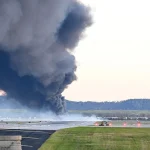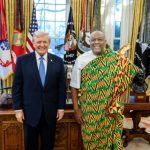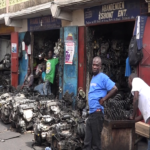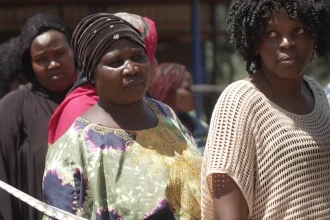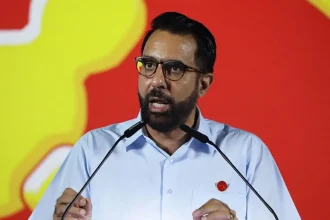Three people have been killed in a knife attack at a church in the French city of Nice, police say.
President Emmanuel Macron denounced the “Islamist terrorist attack” at the Notre-Dame basilica after visiting the scene in the southern city.
One elderly victim who was praying was “virtually beheaded”. Another woman and a man also died. A suspect was shot and detained shortly afterwards.
Two other attacks took place on Thursday – in France and Saudi Arabia.
A man was shot dead in Montfavet near the southern French city of Avignon after threatening police with a handgun.
Separately, a guard was attacked outside the French consulate in Jeddah in Saudi Arabia. A suspect was arrested and the guard taken to hospital.
Anti-terror prosecutors have opened a murder inquiry and France has raised its national security alert system to its highest level.
Nice Mayor Christian Estrosi spoke of “Islamo-fascism” and said the suspect had “repeated endlessly ‘Allahu Akbar’ (God is greatest)”.
Mr Estrosi compared the attack to the recent murder of teacher Samuel Paty, who was beheaded close to his school outside Paris earlier this month.
Police have not suggested a motive for the attack in Nice. However, it follows days of protests in some Muslim-majority countries triggered by President Macron’s defence of the publication of cartoons that depicted the Prophet Mohammed. There have been calls in some countries for a boycott of French goods.
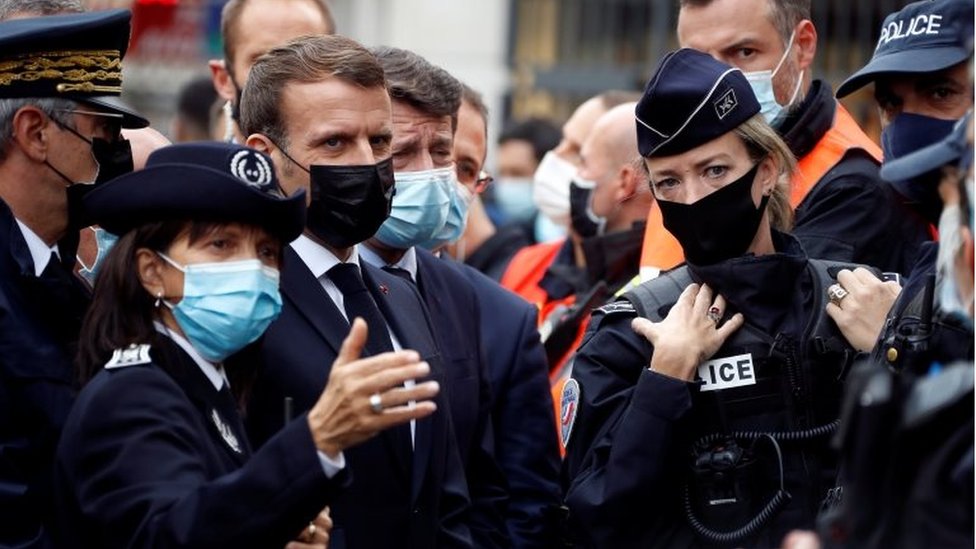
Meanwhile, two further attacks took place on Thursday morning, one in France and one in Saudi Arabia.
A man was shot dead in Montfavet near Avignon after threatening police with a handgun. And a guard was attacked outside the French consulate in Jeddah in Saudi Arabia. A suspect was arrested and the guard taken to hospital.
What is known about the attack in Nice?
Two of those who died were attacked inside the church, the elderly woman and a man who was found with his throat cut, reports said.
A woman managed to flee to a nearby cafe after being stabbed several times, but died later.
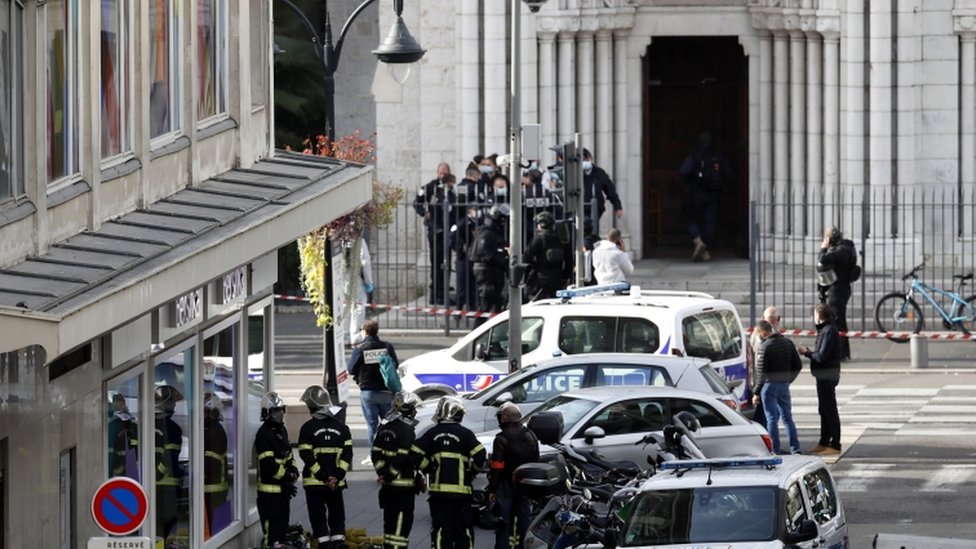
It later emerged that a witness had managed to raise the alarm with a special protection system set up by the city.
Chloe, a witness who lives near the church, told the BBC: “We heard many people shouting in the street. We saw from the window that there were many, many policemen coming, and gunshots, many gunshots.”
Tom Vannier, a journalism student who arrived at the scene just after the attack, told the BBC that people were crying on the street.
Four years ago Nice was the scene of another terror attack, when a Tunisian drove a truck into crowds celebrating Bastille Day on 14 July, killing 86 people.
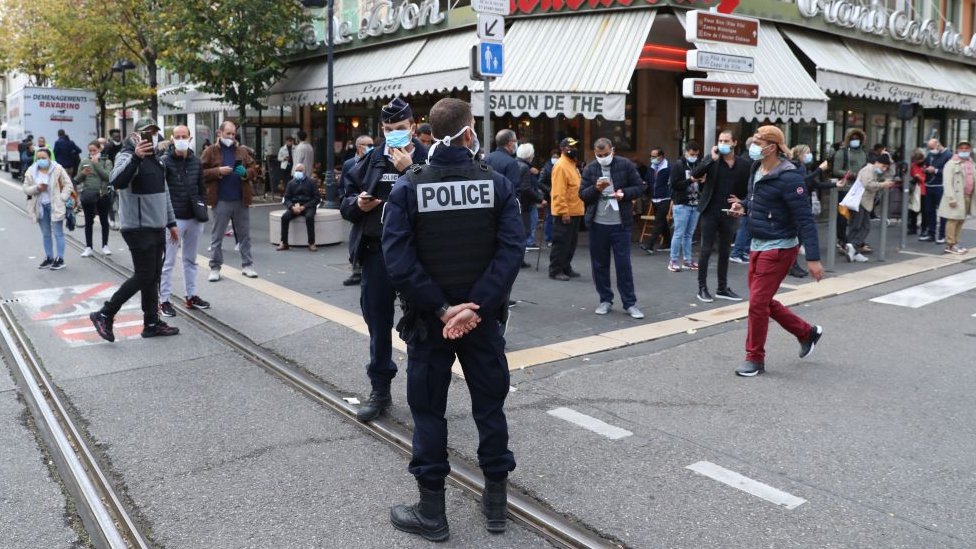
Disorientated and frightened

The terrorist threat level in France is as high now as it was in 2015-16, the terrible days of Charlie Hebdo, Bataclan, the Nice lorry-killer and the murder of Father Hamel in his church in Rouen. Things were bad enough then – and many more people died in those attacks. So why does this outbreak of Islamist violence feel somehow more scary?
One reason must be the symbolism of the Samuel Paty beheading. That a simple history teacher could be murdered – and not randomly but actually selected for murder – has been deeply unsettling for French people. Likewise the targeting today of Christian worshippers in Nice.
But it is also the context: the instant logic of action-response that followed President Macron’s robust defence of secularism at Samuel Paty’s memorial 10 days ago. All it took was a speech, then there were the threats, then there were the deaths.
With a new Covid lockdown providing an eerie backdrop to these events, small wonder the French are feeling disoriented and frightened.
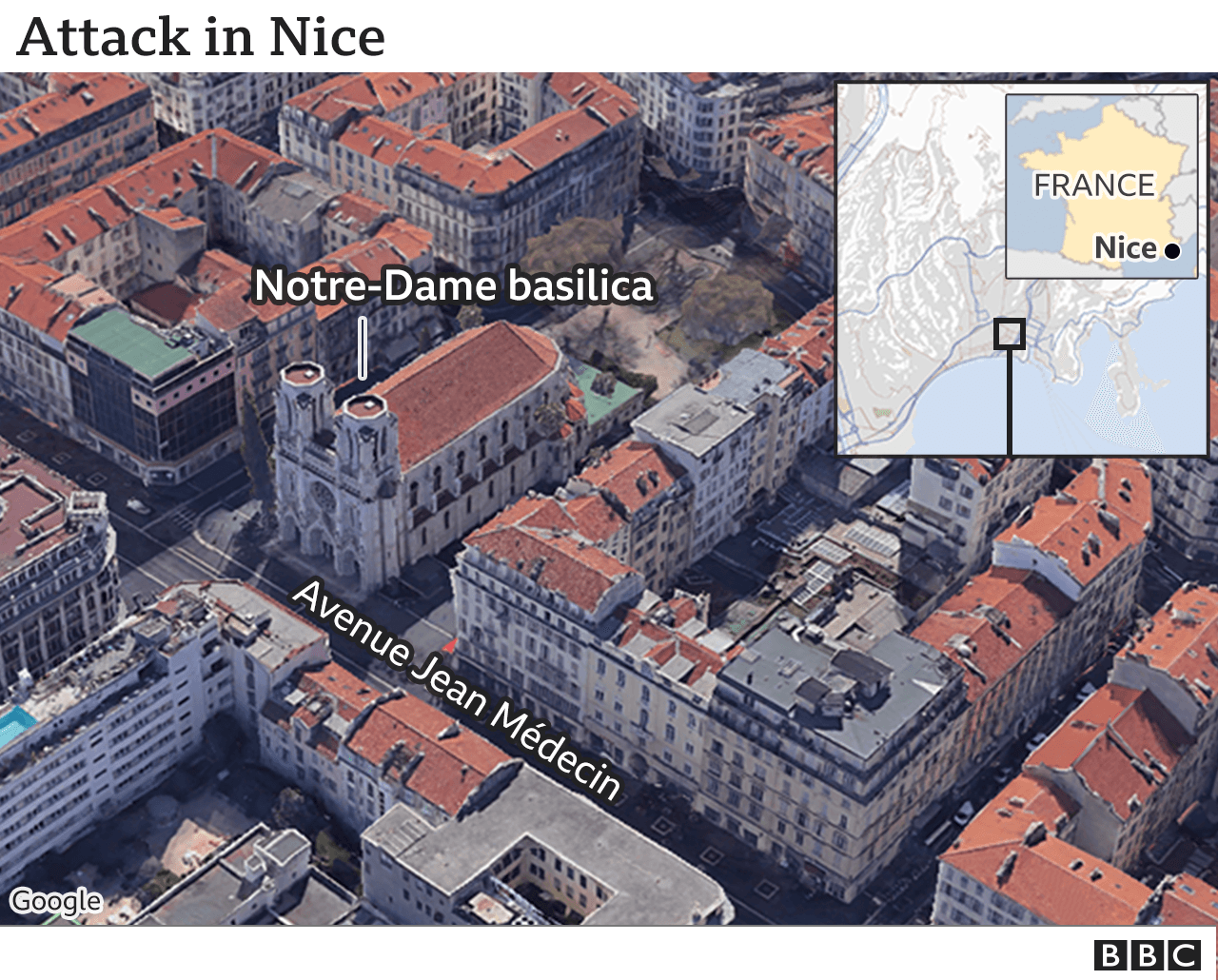

What has the reaction been?
A minute’s silence was held in the National Assembly, where Prime Minister Jean Castex had just been giving details of the Covid-19 lockdown measures coming into force on Thursday night.
Announcing the raising of the “vigipirate” national security alert system to its highest level, Mr Castex said the Nice attack was “as cowardly as it is barbaric”.
The French Council of the Muslim Faith condemned the knife attack and spoke of its solidarity with the victims and their families.
British Prime Minister Boris Johnson, tweeting in English and French, said the UK stood “steadfastly” with France.
I am appalled to hear the news from Nice this morning of a barbaric attack at the Notre-Dame Basilica. Our thoughts are with the victims and their families, and the UK stands steadfastly with France against terror and intolerance.
— Boris Johnson (@BorisJohnson) October 29, 2020
Turkey, which has seen ties with France sour in recent days over remarks by Mr Macron, strongly condemned the “savage” knife attack.
Vatican spokesman Matteo Bruni said the killings had “brought death to a place of love and consolation”.
He said Pope Francis had been informed of the situation and was “close to the mourning Catholic community”.
What’s the context?
Thursday’s attack has echoes of another attack earlier this month near a school north-west of Paris. Samuel Paty, who was a teacher in Conflans-Sainte-Honorine, was beheaded days after showing controversial cartoons of the Prophet Muhammad to some of his pupils.
The murder has heightened tensions in France and the government’s attempt to crack down on radical Islam has angered Turkey and other countries.
Turkish President Recep Tayyip Erdogan was among those calling for a boycott of French goods.
The situation worsened after a cartoon on Mr Erdogan appeared in the satirical magazine Charlie Hebdo.
A timeline of recent attacks in France
October 2020: French teacher Samuel Paty is beheaded outside a school in a suburb of Paris
September 2020: Two people are stabbed and seriously hurt in Paris near the former offices of Charlie Hebdo, where Islamist militants carried out a deadly attack in 2015
July 2016: Two attackers kill a priest, Jacques Hamel, and seriously wound another hostage after storming a church in a suburb of Rouen in northern France
July 2016: A gunman drives a large lorry into a crowd celebrating Bastille Day in Nice, killing 86 people in an attack claimed by the Islamic State (IS) group
November 2015: Gunmen and suicide bombers launch multiple co-ordinated attacks on the Bataclan concert hall, a major stadium, restaurants and bars in Paris, leaving 130 people dead and hundreds wounded
January 2015: Two Islamist militant gunmen force their way into Charlie Hebdo’s offices and shoot dead 12 people



